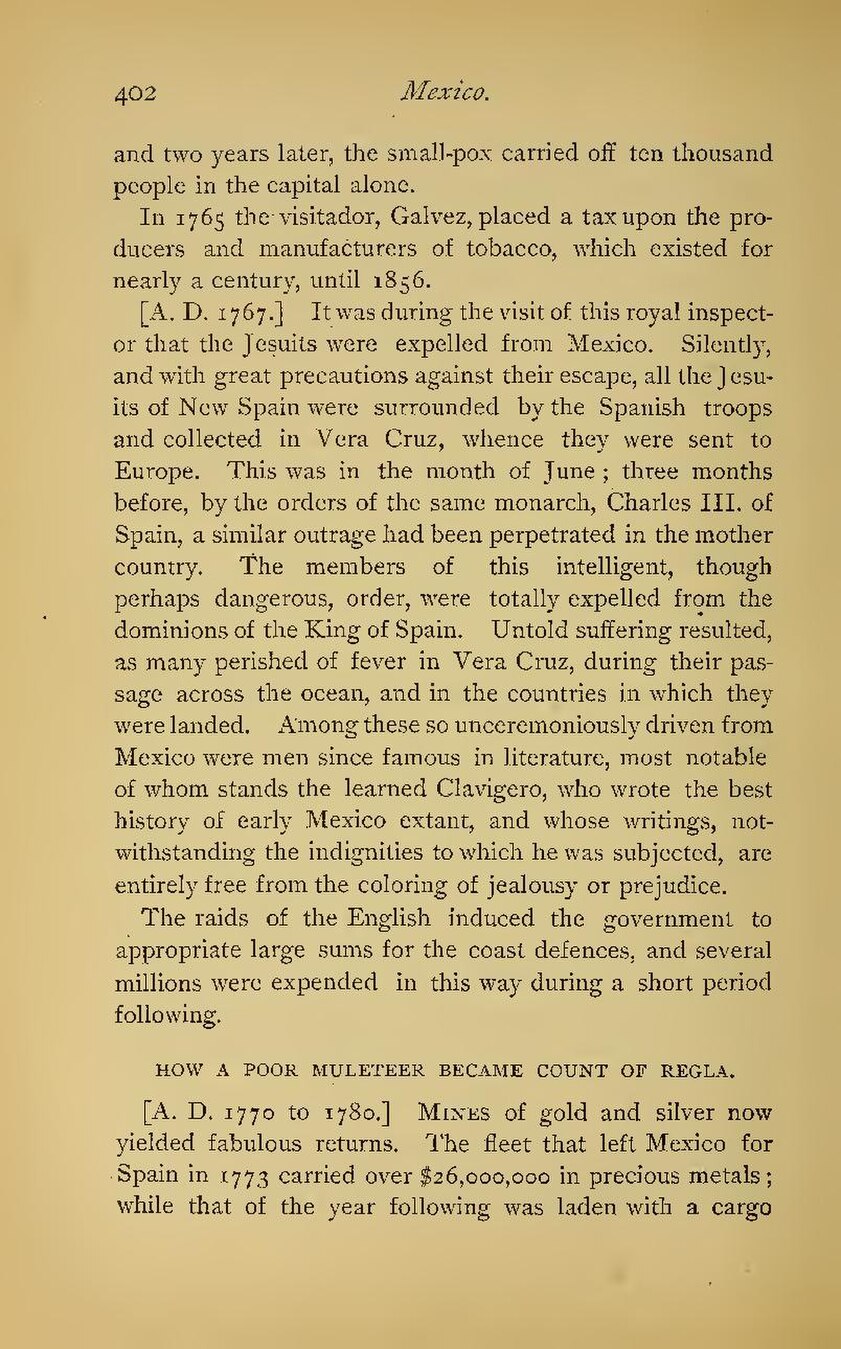and two years later, the small-pox carried off ten thousand people in the capital alone.
In 1765 the visitador, Galvez, placed a tax upon the producers and manufacturers of tobacco, which existed for nearly a century, until 1856.
[A. D. 1767.] It was during the visit of this royal inspector that the Jesuits were expelled from Mexico. Silently, and with great precautions against their escape, all the Jesuits of New Spain were surrounded by the Spanish troops and collected in Vera Cruz, whence they were sent to Europe. This was in the month of June; three months before, by the orders of the same monarch, Charles III. of Spain, a similar outrage had been perpetrated in the mother country. The members of this intelligent, though perhaps dangerous, order, were totally expelled from the dominions of the King of Spain. Untold suffering resulted, as many perished of fever in Vera Cruz, during their passage across the ocean, and in the countries in which they were landed. Among these so unceremoniously driven from Mexico were men since famous in literature, most notable of whom stands the learned Clavigero, who wrote the best history of early Mexico extant, and whose writings, notwithstanding the indignities to which he was subjected, are entirely free from the coloring of jealousy or prejudice.
The raids of the English induced the government to appropriate large sums for the coast defences, and several millions were expended in this way during a short period following.
HOW A POOR MULETEER BECAME COUNT OF REGLA.
[A. D. 1770 to 1780.] Mines of gold and silver now yielded fabulous returns. The fleet that left Mexico for Spain in 1773 carried over $26,000,000 in precious metals; while that of the year following was laden with a cargo
